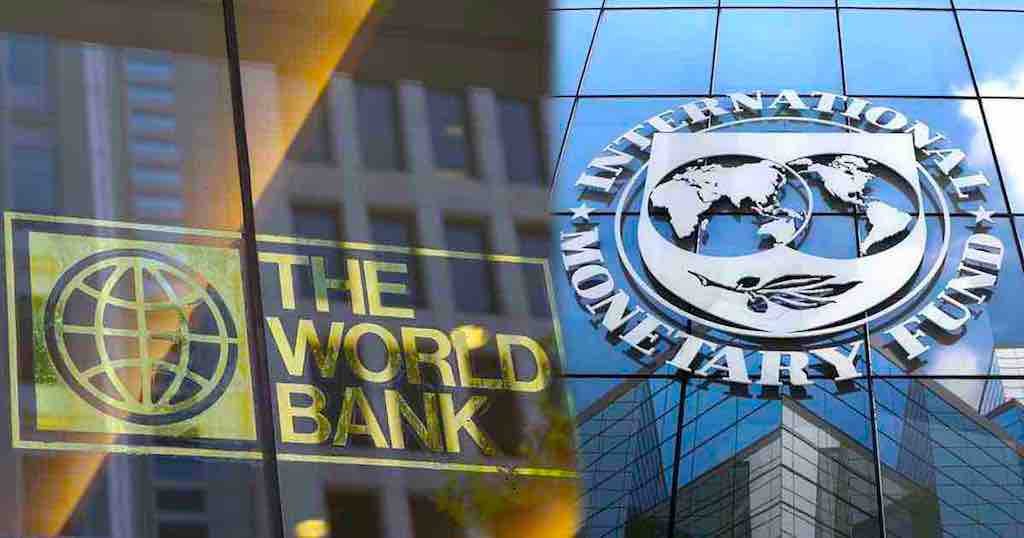Washington (TDI): President Donald Trump, who previously withdrew the United States from the Paris Climate Agreement and the World Health Organization, may push for further exits from international institutions.
His second term outlines plans for the US to withdraw from the International Monetary Fund (IMF) and the World Bank, according to US media reports.
This possible exit follows the decision of BRICS nations to withdraw from international financial institutions, including the IMF and the World Bank.
In response to this significant move, the United States’ course of action remains uncertain, particularly regarding whether it would also consider leaving these global financial organizations.
There are concerns over the potential withdrawal of the United States from key global financial institutions, including the IMF and World Bank.
The absence of US Treasury Secretary Scott Bessent at recent G20 meetings has further fueled anxieties about Washington’s commitment to multilateralism.
Such a move, experts warn, could have far-reaching implications for global economic stability and the US’s position as a leading global power.
The IMF and the World Bank, established in the aftermath of World War II, were designed to strengthen global economic integration and prevent future conflicts.
The IMF, often referred to as a lender of last resort, provides critical financial support to countries facing balance-of-payment crises.
In this sense, emerging markets, in particular, rely heavily on its assistance.
For example, Argentina depends on IMF funding to pay government workers, while country like Sri Lanka also benefit from its programs.
Pakistan, a frequent participant in IMF initiatives, engaged in over 20 programs since 1958, including Extended Fund Facilities and Standby Arrangements.
These programs often come with conditions aimed at promoting fiscal discipline, transparency, and economic reforms.
Read More: IMF, Pakistan Begin Talks on $1b Climate Financing
The World Bank, on the other hand, offers low-interest loans to support infrastructure development, from railways to flood barriers and facilitates innovative financial tools like green bonds.
Both institutions play an important role in reassuring investors and maintaining global financial stability.
In this way, developed nations, including the US, have historically used these platforms to support open economic models and fiscal responsibility worldwide.
However, the possible exit of the US from these institutions could undermine their effectiveness and reshape the global economic order.
As the largest shareholder in both the IMF and the World Bank, the US wields significant influence over their policies and decision-making processes.
Experts have described a US withdrawal as a “disaster” for its global influence.
“Such a move would surprise investors and destabilize the global economic framework,” The Economic Times quoted Kaan Nazli, an emerging market debt portfolio manager at Neuberger Berman.
The US has historically utilized its position in these institutions to advance its strategic interests, particularly in countries like Egypt, Pakistan, and Jordan.
Without US leadership, the institutions could struggle to maintain their credibility and effectiveness.
The IMF and the World Bank have not been without their critics.
The IMF, in particular, has faced backlash for supporting austerity measures and structural reforms that often prove unpopular.
However, the potential withdrawal of the US from the IMF and the World Bank raises significant concerns about the future of global economic governance.
This move could create opportunities for other nations to assert their influence, but it also risks destabilizing the international financial system.
As the world watches closely, the decisions made in Washington will have profound implications for the global order.
A dedicated writer and avid observer of the evolving world of international relations. My passion for geopolitics was ignited during my academic journey, where I excelled in competitive exams, and it has since become the cornerstone of my writing career. I am driven by an insatiable curiosity about the complex interplay of global forces that shape our world.



